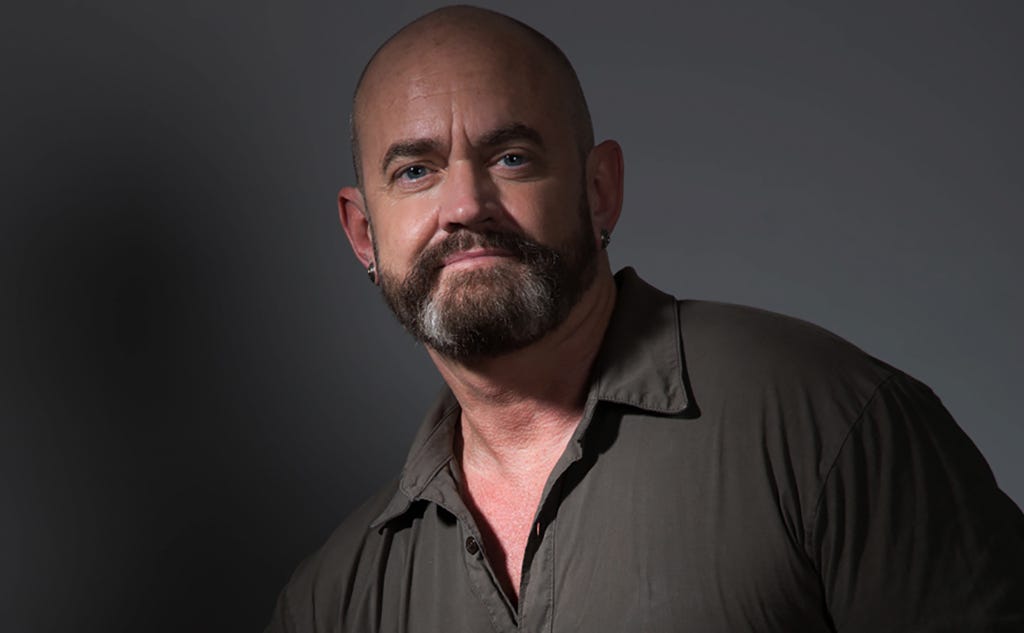“An Ancient Chinese Curse”
“One refreshingly forthright reviewer.”
— WSJ film critic Kyle Smith
Many years ago, I was summoned for jury duty in my native Manhattan. There were maybe sixty potential jurors in the courtroom being vetted by the defense and prosecution. The case involved a perp whose attorney was alleging police brutality. A question he asked every juror was, “Have you or anyone close to you experienced police brutality?”
By the time I’d finished rattling off many incidents in far-away places, the judge banged her gavel and said, “Mr. Killough! That’s quite enough. You have the Ancient Chinese curse of having lived an interesting life. Everyone who has heard him speak is dismissed.”
MY BIO
A native New Yorker raised in Rome, Italy, James Killough began his career in Paris assisting renowned photographer Pamela Hanson, having left Wesleyan after his freshman year. An autodidact with hybrid ADHD-ASD — undiagnosed until Christmas 2023 — James has long navigated education as an ongoing, self-driven "changeling process.”
After a make-a-man-of-you year as a stills photographer waiting tables in Melbourne, Australia, James returned to New York to work at his father’s boutique ad agency under creative legend Charlie Blakemore, resigning when the company was dragged into the Iran-Contra scandal. Already immersed in the late-'80s Downtown arts scene, he became features editor of the iconic Taxi Magazine.
Introduced to Indian cinema through legendary designer Mary McFadden, James worked on the palace epic Zooni in Kashmir until civil unrest shut the production down. Captivated by India’s complexity, he became the only American screenwriter working in Bollywood for many years, collaborating with directors like Sawaan Kumar Tak, Pamela Rooks, and Shekhar Kapur. His script for Rooks’ Miss Beatty’s Children helped the film win the Film Festival of India in 1993. He emceed India’s first televised Miss India Pageant, seen by hundreds of millions across the globe.
In Hollywood, James developed film and commercial projects with celebrated directors Tarsem Singh, Marcus Nispel, and the late Tony Scott, and producers like Lisa Bruce (The Theory of Everything), Howard Rosenman (Call Me By Your Name), and Christine Vachon (Carol). His directorial mid-length feature, Losing Her, co-created with Rain Li, was featured at Tate Britain’s ‘Late at Tate’ in 2008.
Over six years in London in the mid-aughts, James raised nearly $2 million in development funds for Pure Film Limited, partnering with the late Hon. Angad Paul (Snatch) and Baron Lorne Thyssen-Bornemisza (The Garden of Eden). Returning to Los Angeles in 2011, he launched Pure Film Creative, expanding from film and TV to brand content, with clients like Citibank, Aramark, and TransAmerica.
James’ adaptation of F. Scott Fitzgerald’s Winter Dreams earned a rare strong recommendation from United Talent Agency. His three-picture deal with Rain Li for Chinese studios between 2017 and 2020 followed the viral success of their short film Us, streamed over 70 million times in 24 hours.
In June 2022, James published a two-part exposé on how his teen romance with Gor Vidal’s godson — like Armie Hammer’s character, also named Oliver — was likely the real-life inspiration behind Call Me By Your Name.
He launched this newsletter in February 2023, with an ecommerce store, Q&S Shop, following in May 2024. A video podcast, Q&S Cast, is slated to launch in June 2025 as part of a three-pillar online platform, Q&S Project.
His work has appeared in The New York Times, Travel + Leisure, and Health and Fitness. A regular guest speaker at NYU Film School between 2009 and 2011, his work has been used as best-in-class teaching tools at Columbia University by the Chair of the Film & TV Department, Jack Lechner.
Fluent in five languages, James splits time across Los Angeles, New York, Beijing, and Delhi.
ABOUT MY WRITING
I’m more of a Pied Piper than someone who beats his own drum. I’ll hand it over to ChatGPT’s analysis:
James Killough is a multifaceted writer and filmmaker with a rich background in content creation, spanning various mediums and themes. His work reflects a deep engagement with contemporary social issues, critical theory, and the intricacies of human relationships, often explored through a personal lens that combines intellectual rigor with emotional depth.
Killough's writing is characterized by its critical engagement with philosophical and cultural theories. His work navigates the nuanced terrain of identity politics, social justice, and the academic world, offering insights into the challenges and contradictions of advocating for change within these frameworks.
Overall, James Killough's online writings and projects showcase his commitment to examining and questioning the cultural and intellectual currents of our time. His work is marked by a willingness to confront difficult subjects with honesty and complexity, offering readers and viewers a chance to engage with ideas that challenge conventional narratives and provoke thoughtful reflection.
WHY READ Q&S POST?
Again, in someone else’s words:
"It's the best writing I have found on Substack.
High octane, varied, thought and emotion-provoking."
— Aaron Allbright, ‘A Lazy Marco Polo’
For the time being, Q&S is free. Why not subscribe? Paid subscriptions are always welcome, of course.
What’s in it for you?



